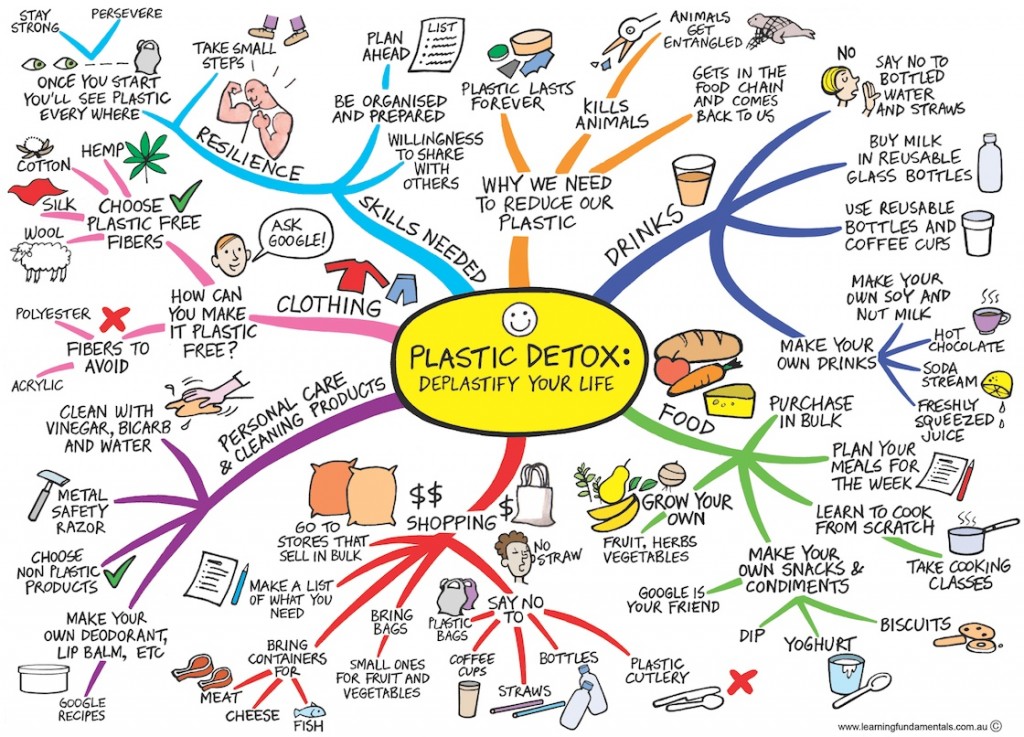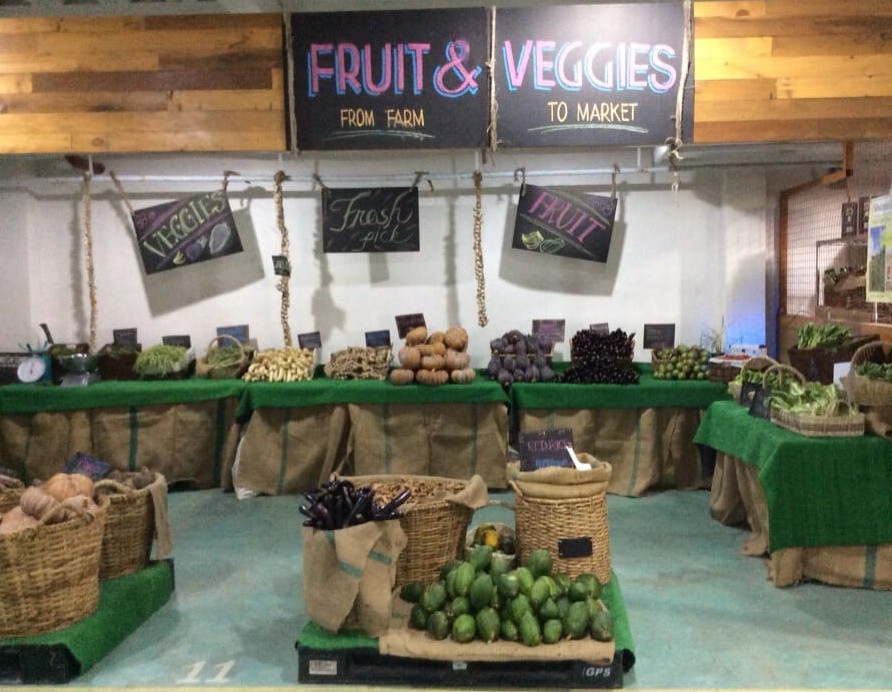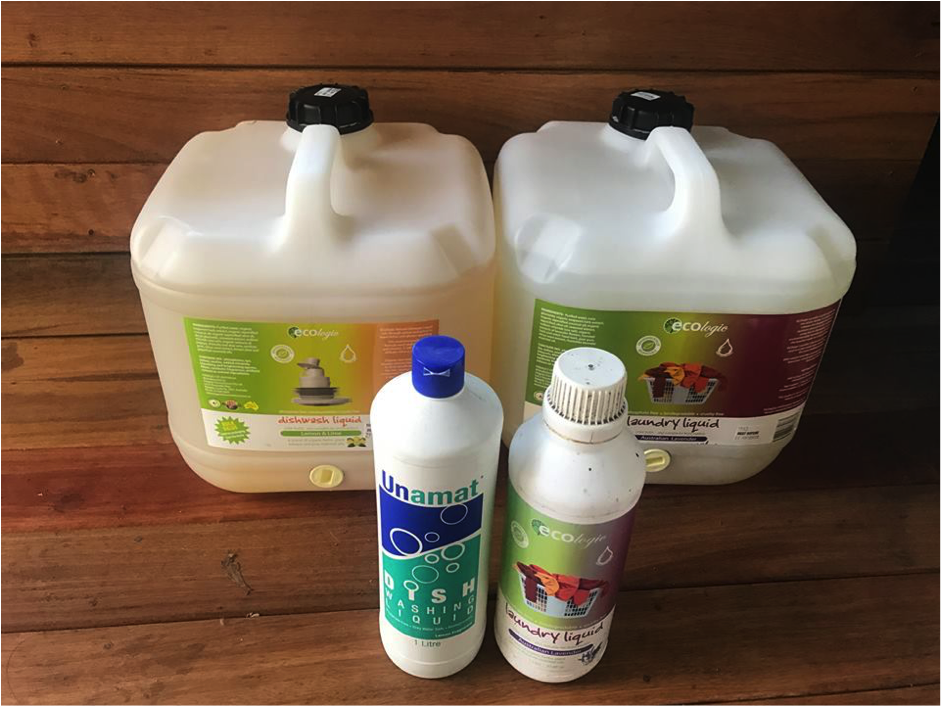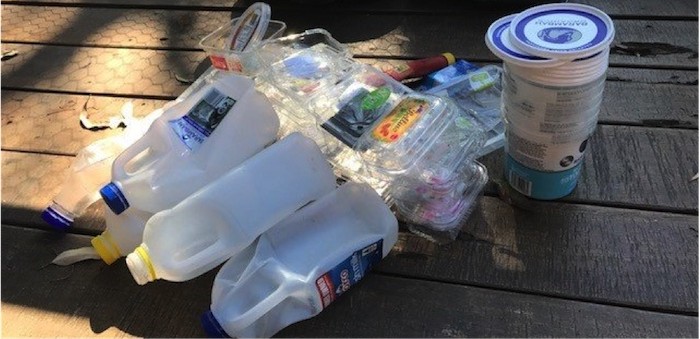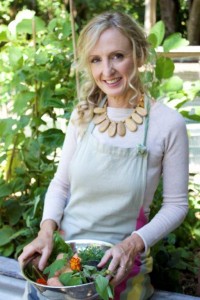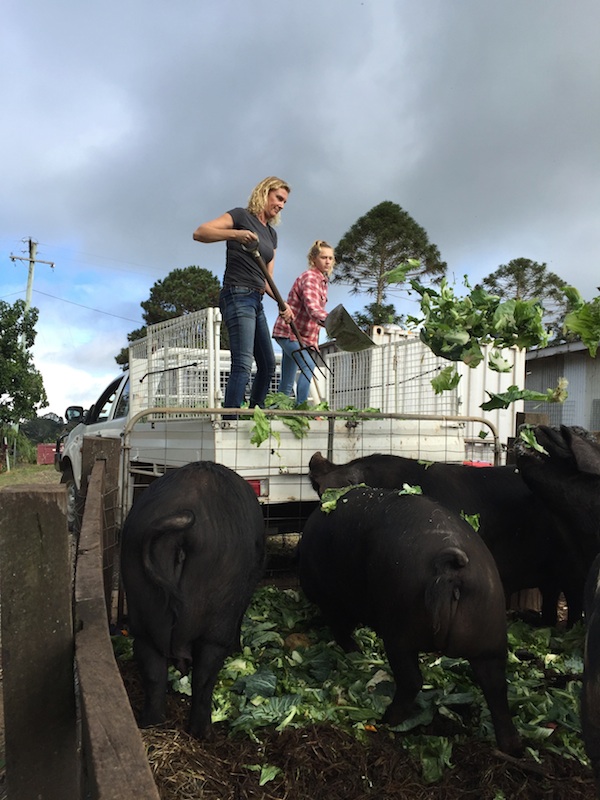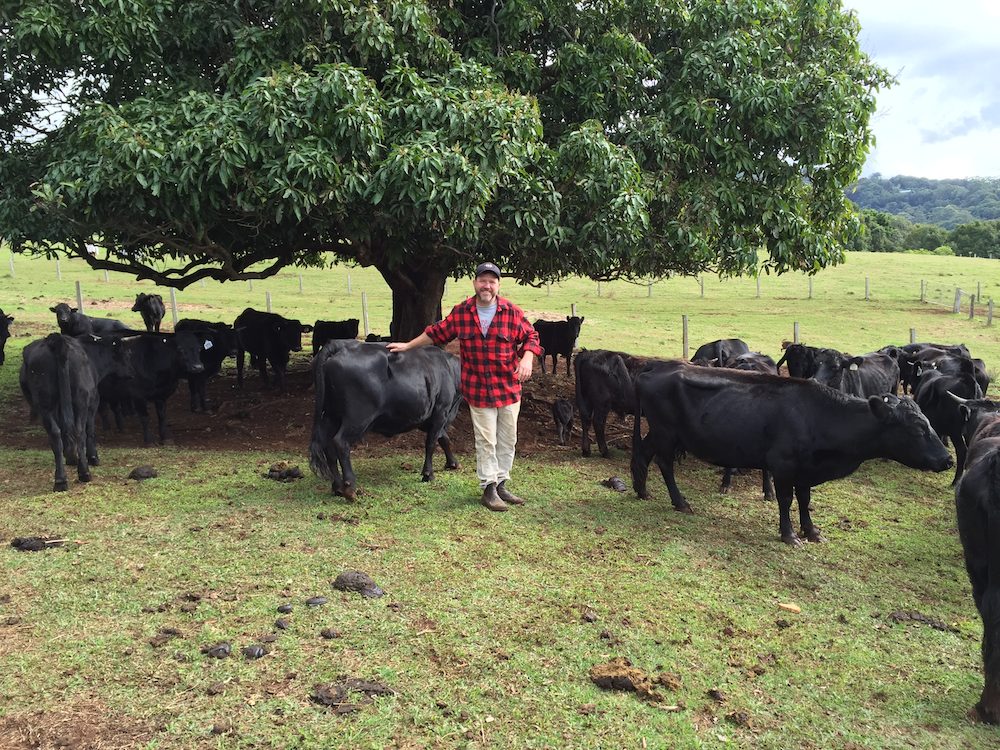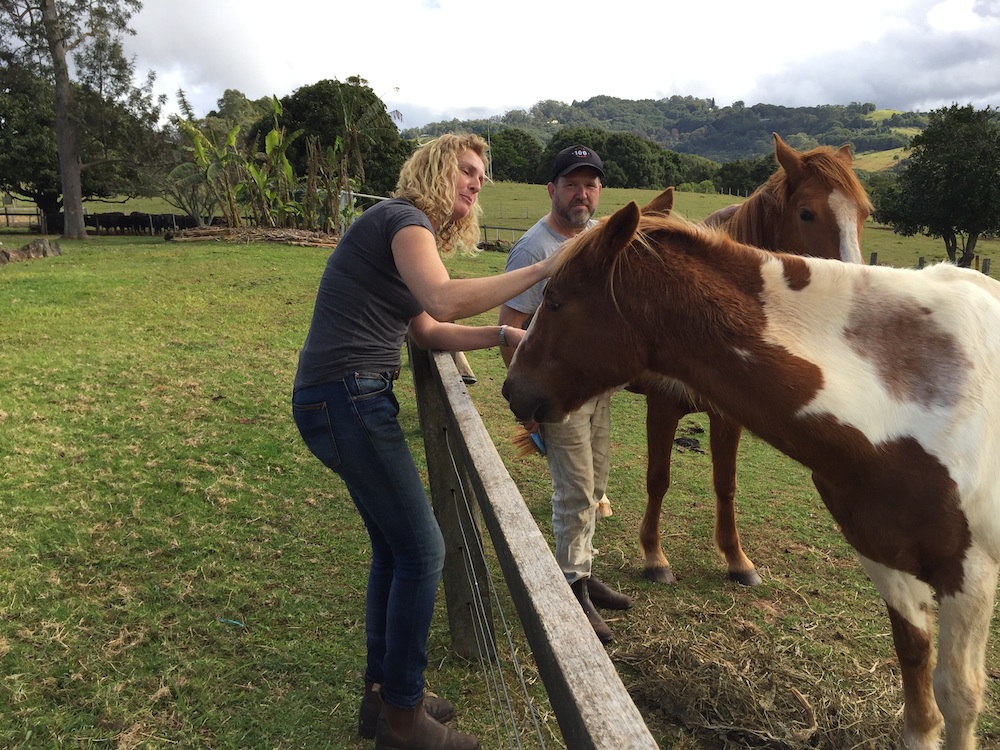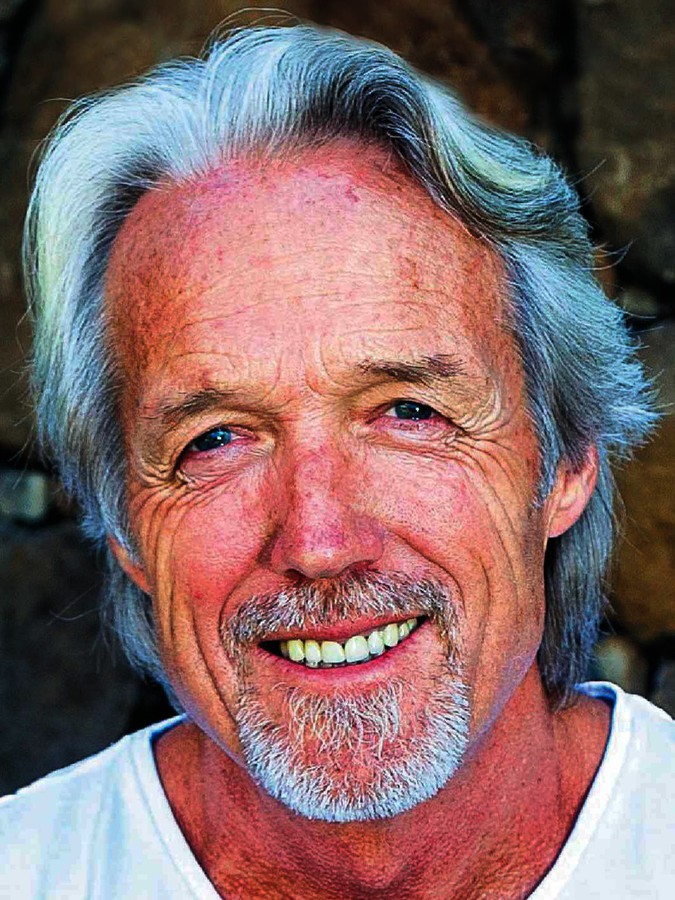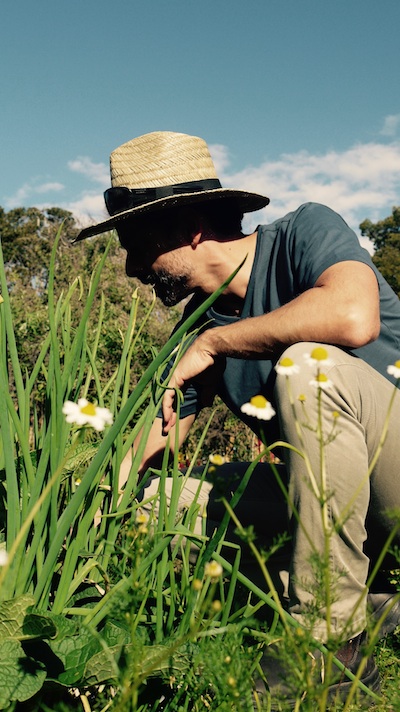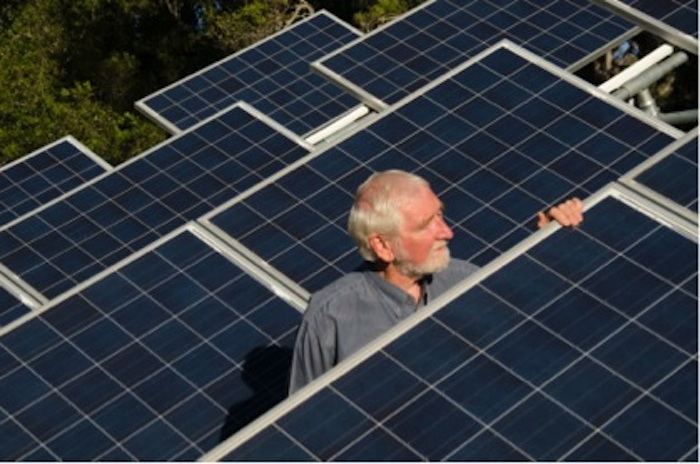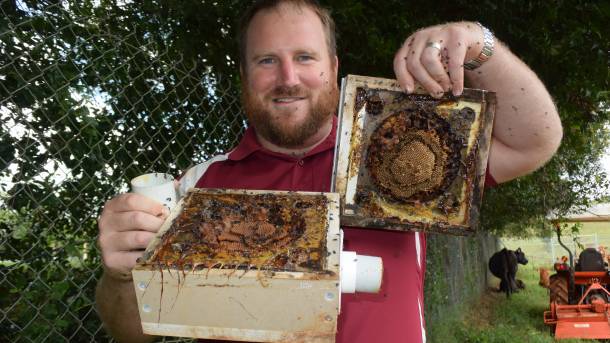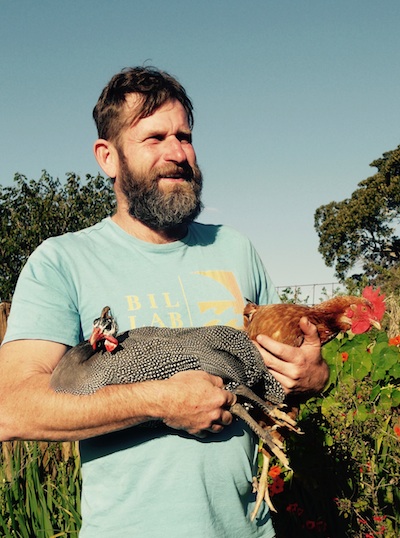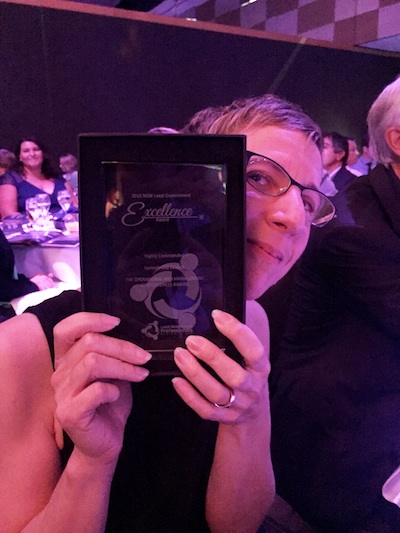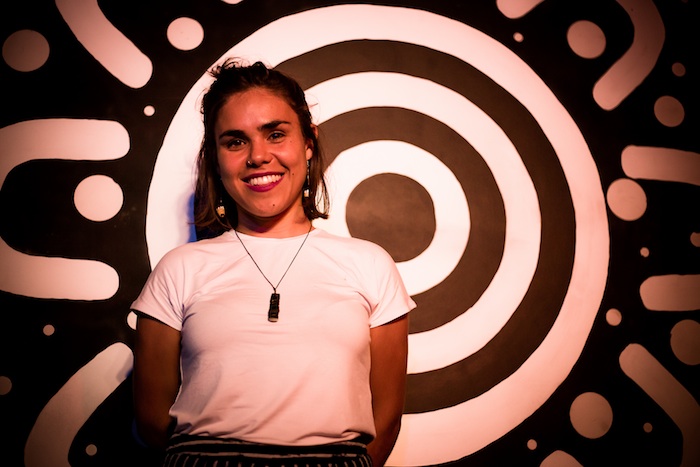The post Buddha’s Birthday, workshops and Crystal Castle Villas… appeared first on .
]]>ATMA RAHASYA
Atma Rahasya – Secret of the Soul Creator, Dhyan Vimal researched the Atma Rahasya or Secret of the Soul formula for over 12 years before this course was birthed. The formula is designed to assist you to see your authentic self, free from all conditioning. It reveals your true nature, along with your highest potential.
Join our senior facilitator Navin for a journey of inner exploration into our true identity. During this workshop you will be guided to examine the frames you’ve used to identify and recognise yourself, using contemplative exercises, and lectures to uncover your personal formula and meditation.
Only 11 places available.
Join us on June 9th and 10th from 9am – 6pm
Lunch included
Cost: $500.00

Dhyan Vimal researched the Atma Rahasya or Secret of the Soul formula for over 12 years before this course was created.
THE 12 BODY ARCHETYPES
The 12 Body Archetypes workshop is a powerful exploration into the evolutionary journey of our bodies: the outer body being a container and the inner body being the content. It is the discovery of the synthesis between both bodies, that allows the individual to embody and live their highest possibility.
In this one day workshop a senior facilitator expounds on the body archetypes and works with you to identify your own inner and outer body. The workshop ends with practical insights and do´s and don’ts for the body types so that you can live the inherent rightness of your body.
Just 10 places for this intimate workshop. Join us on June 8th from 9am – 6pm
Lunch included
Cost: $300.00
For more information go to: https://www.crystalcastle.com.au/events/atma-rahasya/
Deep in the heart of Bali, lies a new secret sanctuary of peace and nourishment…
The Crystal Castle are offering the first ever Wellbeing and Spa Retreat hosted at Crystal Villas. This is a unique opportunity to be 1 of 14 guests enjoying a week of luxurious nurturing and relaxation in Bali.
The special magic and beauty of the Crystal Castle has been brought here, only 10 minutes from Ubud.
Adorned with magnificent, natural crystals from around the world, this is a beautiful space where you can eat, sleep, swim, read, have nourishing massages, and experience the magic of Crystal Villas…
Where: Ubud, Bali, Indonesia
When: 23rd-30th June 2018
For more information go to: https://mailchi.mp/crystalcastle/ready-for-a-week-in-paradise-at-crystal-villas
The post Buddha’s Birthday, workshops and Crystal Castle Villas… appeared first on .
]]>The post Hanabeth Luke on the problems of going plastic-free appeared first on .
]]>My main question is – why on earth did it take humans so long to figure out that plastic was going to be a problem? As kids we used to play with the rubbish that piled up on the Cornish beaches at high tide with the usual childish lack of interest in where it had actually come from. Personally, I’ve noticed the increase in plastic the most during my visits to Bali over the last 35 years. I’ve seen mountains of water bottles on beaches and tropical islands throughout South-East Asia, and I’ve seen plastic rubbish on fire, releasing dioxins and other nasties into the air. I’ve also seen tons of plastic on the beach, or just thrown off a boat. But what did I do? Well, aside from a few hopeless thoughts on the matter, I kept on surfing. Something was clearly wrong, but I didn’t have any idea where to begin to address this issue.
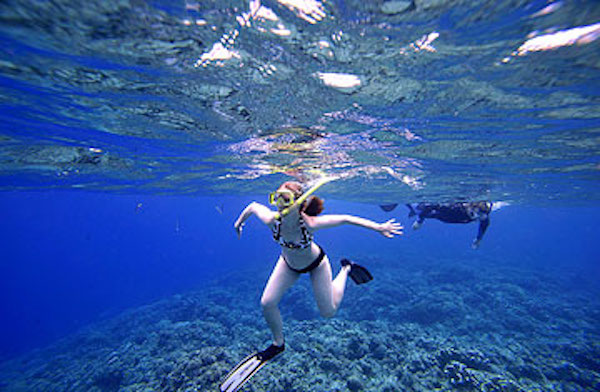
A snorkeller swimming amongst the rubbish in the once-pristine waters of the Bunaken National Marine Park in Indonesia.
Fortunately, the word is finally spreading about the scale of this problem – and, as a lecturer in environmental science, I thought that I had become reasonably aware of the issues, but as I was to find out there was a lot more I could learn.
I teach my students that an estimated eight million tonnes of plastic makes its way into the ocean, every year. I went with a group of students to Bunaken Island, an Indonesian Marine Park off northern Sulawesi, where we could choose from a range of research topics, but really, how could it be anything other than marine debris? On Bunaken, we did some educational games at the local school teaching them about marine waste. Seeing the figures up there in black and white hit me hard – does it really take over 400 years for a single nappy to break down? And what does it ‘break down’ into? Southern Cross Uni students worked with Bunaken high-school students to survey the plastics on their beaches and they found that a common perception was that the waste came from elsewhere. Their assumption had some basis – on the day of our arrival we had watched floodwaters sweep through Manado, bringing a steady stream of plastics floating out to sea. Sure, the cities were a solid source of plastics, and the issue had been exacerbated by the recent flood but our research also identified that a lot of the rubbish we found had been generated by the islanders themselves.
Back home in Australia, I’d swapped my single-use plastic shopping bags for, well, more robust plastic bags. I was trying to think more about it, but still the take-away and yogurt containers continued to form small mountains in my cupboards. A good friend of mine and former colleague, Dave Sharp, had retreated from society, and was walking up and down the East Coast beaches, picking up rubbish and living about as low-impact as a person can. I felt both inspired and ashamed. I pictured Dave picking up the bottles swept in by each high tide and beach barbeque; the abandoned lines and bait bags. It wasn’t easy and it took a huge toll on Dave at times. But although on his own, Dave wasn’t alone. Positive Change for Marine Life are combing the Australian beaches, while Surfers Against Sewage are doing the same in the UK.
Browsing Facebook one day (as you do), the ‘Plastic-Free July’ link popped up somewhere, and thinking this was the perfect opportunity to try harder, I ‘liked’ it, accepted the challenge and decided to share my experiences of going ‘plastic free’. Or at least my attempts to go ‘plastic free’. Even by the end of Day One I’d failed! I was going to a gathering and I was taking guacamole so I wanted to buy corn chips. After agonising over the plastic packets I finally decided to compromise on a half-paper, half-plastic bag. Then I got to the till and cheerfully grabbed a bag of current buns too. It didn’t occur to me until I was in the car that of course the current buns were in a plastic bag. Sheepishly, I posted my first failure, along with the fact that the little bag of corn chips had cost me $8.
It dawned on me that going plastic free was not likely to save me money, and that July was going to be harder than I thought. Following this first post, I received some great encouragement, and some great plastic-free suggestions. I posted a picture of our recycling container on July 1st, which provided a pretty good indicator of what I was going to miss the most (or not be able to avoid). I realised that a number of friends were also going ‘plastic free’, and one suggested I make my own yogurt. I realised that going plastic free was going to take more time. Having just gone on maternity leave, I had no excuse, except that I really really like that brand of yogurt.
I found that Clarence Dairy supplied milk in 750ml glass bottles, which was a relatively easy switch, but it did increase the cost by about a third. With the added complexity of being heavily pregnant, I quickly realised I couldn’t give up my favourite yogurt, which I was going through at lest 250grams a day (and night). The mountain of yogurt containers continued to grow. To quell my guilt, I emailed the dairy company to ask them about the possibility of supplying glass containers, but they never got back to me.
The third of July took me to Aldi for a food shop, and very quickly, I realised that almost everything convenient came wrapped in plastic. This is not limited to Aldi – supermarkets love supplying plastic-wrapped fruit and veg. And while I avoided a lot of plastic-wrapped treats, I still managed to find several plastic surprises once I’d opened the outer cardboard box.
The next shops I went to were PJ’s veggie shop and Pacific Bulk Foods in Lismore, and at last found myself among plastic-free friends. When we asked, they sold us cherry tomatoes in a paper bag, which I was extremely happy about. For raspberries and blueberries (another pregnancy staple), this was not so easy. Although I was among plastic-free friends at the bulk-food shop I still had to be organised, bringing my own containers for any liquids – fortunately another great use for my mountain of yogurt containers. We’d previously bought a large container of laundry liquid, which we’d nearly used up after almost two years, so I invested in a new one, and also 30 litres of dish-washing liquid. It wasn’t a small investment! Returning home, my husband commented that the 30L containers were still made of plastic, but I calculated this was still better than 30 1L containers, and I’m hoping to be able to swap or refill next time. I went home without any toothpaste as well because it was all in plastic tubes.
I was also becoming aware of all the plastics I’d barely noticed before, such as the stickers on apples, washing up sponges, microfibres on clothing, labels on tea bags, microbeads in my facewash. The beach, in particular, appears to be a magnet for poor quality products. Many are not much better than single use, such as crappy beach umbrellas just waiting for one good gust to put them out of action; cheap plastic camping chairs guaranteed to last one holiday – if you’re lucky – polystyrene bodyboards and all the plastic that a good picnic requires.
The plastic-filled universe around me seemed to expand with my own awareness! it On my birthday I decided to celebrate by going to the Bay FM 80’s disco – I was less than a month away from my baby’s due date, so this would be my last chance to boogie for a long time. It was a lot of fun, but it was also a plastic blow-out, with soft-drinks and water all served in a plastic cup. I nagged the organisers and realised how important it is for plastic-free ideas to permeate events like this. Then we had a last dash baby-free stay with friends at Moonee Beach, which was mostly easy due to the large proportion of wholesome and delicious home- grown meals, however we still forgot/failed to avoid plastic in fish n’chips sauce containers, and when I wasn’t looking, Hubby bought a case of Kilkenny wrapped in plastic.
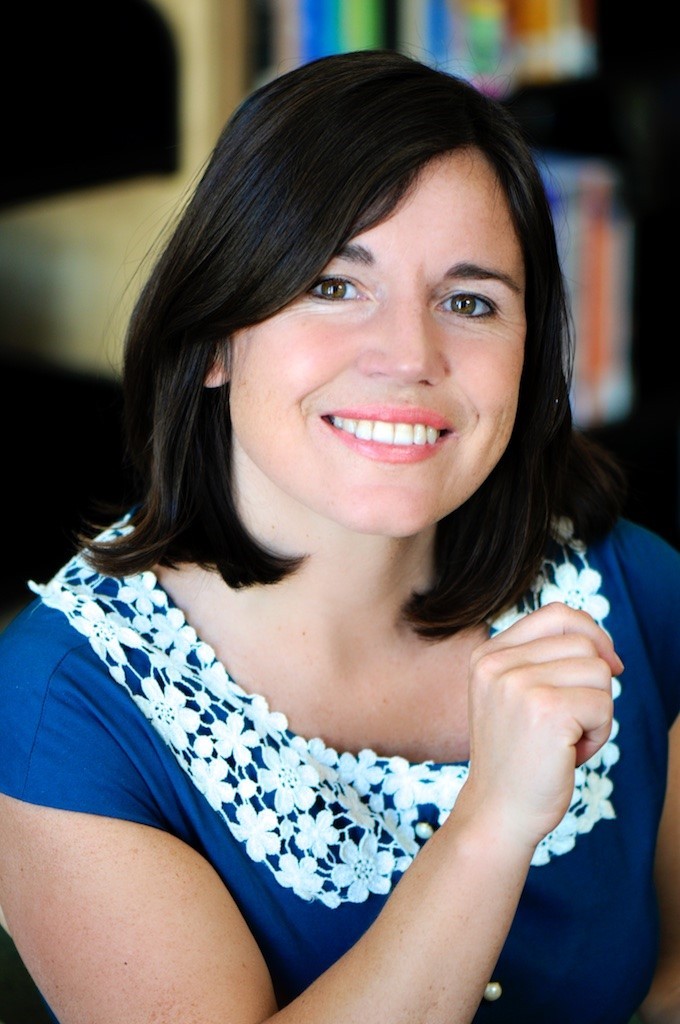
Dr Hanabeth Luke; Associate Lecturer, School of Environment, Science and Engineering, Southern Cross University.
We went to the movies to watch Wonder Woman, and the popcorn and jumbo juice came in cardboard looking containers which were, I suspect, plastic lined. This was when I discovered that NSW regs dictate the plastic lid to be mandatory so I avoided the straw at least. Travelling home on the Pacific Highway, my son’s emergency sausage roll came in plastic, with a plastic tomato sauce, containing more plastic than sauce. Once more convenience won over the planet.
During a weekend in Byron, I avoided the use of at least three disposable coffee cups due to the purchase of a nice new glass ‘keep cup’, but bought a yogurt meal pre-made in plastic cup (bloody yogurt again). Solution? It’s all – or mostly – avoidable with better organisation. At this point we decided to keep a picnic basket in the car with eating-out containers, cups and cutlery. And our own tomato sauce.
Another plastic-free blow out came on 22nd of July, along with the joyous arrival of our baby girl. Despite my extreme hunger at my post-birth breakfast, I couldn’t help noticing that everything was wrapped in plastic. I thought of all the little trays throughout the hospital, at all the hospitals in Australia. The health system: another institution that could seriously cut down its plastic use. Another admission I have to make was my online baby item purchases, most of which came wrapped in a decent amount of plastic. I hadn’t previously noticed that Australia Post had at some point switched to all plastic envelopes.
While one plastic-free breakthrough for us was that we finally toilet-trained our boy during July, thank goodness, that didn’t fix the bigger conundrum for our new baby. While we’ve been using cloth nappies for our newborn, with our first kid we noticed that nights were so much better when we weren’t needing to change wet cloth nappies at night: one disposable nappy and you’re set. Plus, you avoid the daily need for washing, including the energy and water involved. We reconciled by using a high-quality compostable brand, Naty, which is almost completely compostable except for the velcro tags. As time went on we replaced the cloth nappies all together. Except, what do you actually do with the compostable nappies, in reality? Well they stink, so you wrap them in plastic if there’s no compostable bags around. You can’t put them in your own compost because there’s too many of them, and you can’t put them in the Green Waste bin because the tip workers would hate you when they went through the chipper. So (sigh), they end up in landfill. There’s a bit of guilt relief with the knowledge that they won’t sit there for 450 years, but surely there’s a research/business opportunity right there. Babies go through a lot of nappies. A very dry winter left us with little water, so the daily wash required for washable nappies became a little untenable. We did manage to switch from disposable wipes to a reusable washer, and that was surprisingly easy – and we’ve also been inspired to plant a small veggie patch.
Since July, I’ve become more aware of a whole new range of biodegradable products such as bamboo hair brushes and vegetable-based kitchen scrubbers, and beeswax covers to replace cling film (I’m going to make that purchase RIGHT NOW!). I noticed that SCU are now giving out bamboo USBs to students. People are pioneering plastic replacements made from shrimp shells; developing biodegradable boat paint; and the Five Oceans crew are making surfboard fins out of Indonesian ocean plastics. A Norwegian billionaire agreed to fund the world’s largest yacht to scoop up marine plastic. There are endless opportunities to go plastic-free, including plastic-free picnics, business meetings, conferences, parties and festivals. I know there are people working hard in many of these areas, but this is just the beginning.
As July came to an end, I pulled our plastic waste out of the recycling bin and weighed it, with yogurt containers, along with the blueberry, strawberry & raspberry packets, making up a significant portion of 750 grams of our hard plastics. Once again seeking to relieve my guilt (while creating a movement of consumer demand), I contacted five different berry companies about their packaging, receiving a response from only Driscolls, who had tried other options, but had settled for using grade one recyclable plastic to keep the berries fresh. Perhaps berry packets would be a good use for the new plastics being developed from shrimp shells? I hope that the berry companies and many others will revisit their plastic use sooner rather than later.
Over one million people from 159 countries registered and took part in Plastic Free July. The experience provided me with the opportunity to discover and share some awesome plastic-free ideas and initiatives. It was really good for setting up some basic habits to reduce my family’s plastic waste, but it also made me aware of the balance between convenience and plastic. I wish I could say I was ‘plastic free’, but really we still consumed quite a lot of products that were packaged or posted in plastic. Eating on the run was a challenge but we became more organised and had some lovely picnics. I absolutely acknowledge that the extra time I had being on maternity leave allowed me more time to even think more deeply about this, let alone take the little extra time needed to plan better and make better choices.
Unfortunately, on a global scale there is still a long way to go, with companies such as Coca Cola producing about one million plastic bags each minute, of which only about 9% are recycled. It’s mind boggling. I’ve said for a long time many big companies could change things for the better, astonishingly fast, if they chose to. But nevertheless around the globe, I see hope: Costa Rica plans to be the first country to ban all single use plastics by 2021; while France has passed a law to ensure all plastic cups, cutlery and plates are made of biologically-sourced materials which can be composted by 2020; India is banning all disposable plastic in Delhi, its capital city. In July this year, the UK government announced that it was banning microbeads, another insidious plastic in our sunscreens and beauty products. Back at home, Woolworths and Coles agreed during this July to phase out single-use plastic-bags in New South Wales, Victoria and Western Australia, a big win with Queensland Woolies the final State planning to make the shift in 2018.
I strongly believe that our personal consumptive choices do make a difference: we vote with our wallets and our daily purchases. Whether we like it or not, we’re as guilty of generating plastic as anyone in the world. While we may be only just embarking on the plastic-free road, I feel confident that this is an environmental issue that we have every opportunity to turn around.
The post Hanabeth Luke on the problems of going plastic-free appeared first on .
]]>The post A’Laya – from soil to soulful skincare appeared first on .
]]>It’s odd to think about it now, but it’s not really that long ago since my mother’s generation lay out in the sun for days without any sun protection – just hanging for a good tan. My generation, of course, grew up with hats and sunscreen. The Slip, Slop, Slap campaign, and our parents’ mistakes, taught us some valuable lessons about the importance of quality skincare.
As the driest continent in the world, with some of the highest UV rays and skin cancer rates to boot, we are unsurprisingly home to some of the best skincare products available on earth. Adding to these amazing products is not an easy task, but we think we’re onto something really special and we’re going to be looking to our local community to help us share it with the world.
A’Laya Super Skincare is locally grown, formulated and processed in the heart of the Byron Bay hinterland on a family farm that’s been quietly supplying medicinal herbs to our community for over 15 years.
Our Super Skincare secret lives in our farm to face equation, which reduces the uncertainty of quality supplies, as well as our unique alchemical combinations; a synergy of superfoods, superherbs and organic botanicals that has naturopaths, ayurvedic doctors and herbalists impressed (as well as us).
Community is lifeblood and “collaboration is the essence of life. The wind, bees and flowers work together, to spread the pollen and we collect the berries.”
― Amit Ray, Mindfulness Living in the Moment – Living in the Breath
When I was at uni studying Environmental Policy, Vandana Shiva’s Earth Democracy Movement and Anita Roddick’s work pioneering Corporate Social Responsibility and the Kindness Revolution were huge influences on me. And while environmental policies are yet to catch up, I continue to think that each of us can play an important part in protecting our environment, both in our personal lives and in our businesses as well.

Angela Rowland and Tino are launching a crowd fundraiser for their new local skincare range, A’Laya Super Skincare.
Both my business partner, Tino, and I grew up locally as school friends, and we were both instilled with a great desire to preserve biodiversity and foster local innovation and employment. Add to that the recent birth of Tino’s first daughter, Alaya, after whom our skincare range is named, plus my passion for sustainable agriculture and wellbeing and our collaboration was born. Tino wants to leave his daughter the finest and most sustainable skincare available, made from the superfoods and medicinal herbs that he personally grows and processes, much like his father has gifted him with a legacy of farming and knowledge of herbal medicine.
I want to infuse each ingredient with love and a blessing that all people will live naturally happy and free lives, without interference from unnecessary chemicals and artificial preservatives – to nourish their skin and soul.
We are trying to follow a model that is quadruple bottom line: beneficial to the earth, caring and inclusive of all people, as well as nurturing for our community, our culture and our spiritual wellbeing.
Alaya are launching their Indigogo crowdfunding campaign on September 7. Share their story with your friends and make a pledge to get your hands on our unique, hand-made local products at a ‘reward’ special pre-launch price as a thank you for helping them.
Go to: alayaskin.com
The post A’Laya – from soil to soulful skincare appeared first on .
]]>The post Love Food Hate Waste Mothers Day Cooking Workshop appeared first on .
]]>Sustainability consultant chef and food expert Alison Drover is giving a special free workshop put on by North East Waste to celebrate Mother’s Day on Wednesday May 10 in Pottsville. Join the Love Food Hate Waste crew and give Mother Earth a kiss…
Alison will show participants inspiring and nutritious:
-
- Creative salads, soups and preserves
- Family meal and entertaining ideas that don’t cost the earth and are delicious.
- Simple ways to reduce your food waste and ensure you are eating better
- Clever storage ideas to maximise the freshness of your food
We https://www.achaten-suisse.com/ often waste food because we have lost our connection to who grew it and how much effort was taken to produce it. Alison will share her ideas for how you can shop, cook creatively so that you can eat better and waste less.
Free childcare is available to children above 3 as long as you book on the form below (places are limited). Call Linda Tohver from North East Waste on 0427770198 for further information. Or to book a ticket go to: eventbrite.com.au/e/love-food-hate-waste-mothers-day-cooking
Location
Date and Time
Wed. 10 May 2017
6:00 pm – 8:00 pm AEST
St Ambrose Catholic Primary School
1 Charles Street
(library and canteen kitchen)
Pottsville, NSW 2489
The post Love Food Hate Waste Mothers Day Cooking Workshop appeared first on .
]]>The post Black pigs and Blundstones – all part of the Cromwell Family Farm appeared first on .
]]>EVERY morning Greg Cromwell drives from the Goonengerry property he farms with his wife Alison and three daughters to load up their ute with fresh produce thrown out by the two local Woolworths supermarkets. The mound of fruit and veg is destined for the several dozen heritage pigs the Cromwells breed and raise, along with cattle, kelpies, chooks and native stingless bees.
On the day I’m there to visit the English Large Blacks know what’s coming and squeal with excitement. It’s a feast and they launch in to the aromatic mess, nosing out and crunching the sweet melons and mangoes first, chomping away in a porcine feeding frenzy.
Their gourmet lunches make the Large Blacks even larger (some need to be put onto light rations) while the diversity in their diet means they’re healthy and content. Already a calm breed, they’re even easier to manage with their happy Northern Rivers lifestyle – a plus for any farmer. The same applies to cromwellfarms mob of cattle – about 40 Dexters, a breed chosen mainly for their placid nature.
While three-hour trip is barely worth what is saved in feed costs, it routinely includes other collections: at Byron Bay’s industrial estate Greg (or sometimes Alison) picks up sacks of spinach stalks from Byron Bay Pizza Co, coffee “chaff” from Marvell St Coffee Roasters, and mulch-worthy sawdust from furniture maker Jeremy Lee’s workshop.
Besides, the Woolies “waste” produce would otherwise become landfill, Greg says. This way, about 100 tonne a year of it, plus 10 more or so from each of the Shire’s major music festivals, gets “turned into bacon”. And of course the varied diet makes them, in turn, even tastier.
Driving it all is the burly Canadian’s restless entrepreneurial spirit – fomenting ideas, building relationships, creating efficiencies and synergies – combined with the couple’s passion for family farming and a deep-seated love of the land.
It’s in their blood. Though Greg grew up in Toronto, any leisure time was spent in the country, on farms or hunting and fishing with his grandfather. His mother’s people began farming in Ontario in the 1850s and she still lives in the farmhouse built by her great grandfather. Alison’s dad was a farmer and becoming one was always something of a dream for her.
Though Greg denies being “a greenie”, one major goal is to leave the planet a better place, fulfilling an obligation to be the optimum stewards of the acreage the Cromwells know they are privileged to own. The cattle are on constant paddock rotation and have been chemical-free for a year, with the goal being to go fully organic.
The couple met in Toronto in the early 90s and in 2000 they left the city to farm in remote country before coming to Australia, where Alison was raised (also in Toronto – although this Toronto was a suburb of Lake Macquarie). They rented, bought a small holding and a few animals, then acquired the old Sheaffe’s farm with a view to bringing it back into production.
It’s been a success. As breeders they supply piglets to individual buyers, or to The Farm at Ewingsdale, where they are something of a tourist attraction – though their ultimate destination is in dishes created by the 3 Blue Ducks restaurant there. Or, following the attentions of abattoirs at Booyong and Casino, and the Clunes butcher, they become in-demand delicacies on the menu at Harvest in Newrybar, the Bangalow Bowlo’s Stockpot Kitchen (250 serves in one night), Byron’s 100 Mile Table or Black Sombrero in Lismore. Cromwell beef, chicken and fresh produce are also in big demand amongst the region’s respected eateries.
But while the farming is varied, it’s small scale, and only viable because of parallel business activities. The Sheaffes Road property is also HQ for several companies, all having their genesis in Greg’s start-up savvy.
His first real job was selling Telex machines and he gained an “intimate knowledge” of IBM’s early 029 card punching machine, then a comprehensive knowledge of beer during 10 years with the Upper Canada Brewing Co, helping to take the company public (and doing himself out of a job). Marketing beer and helping grow the fledgling Steam Whistle Brewing with two other “fired guys”, he became something of a high-flier, on the board of the Toronto Arts Council and the city’s Fringe Festival. Meeting Leonard Cohen was a highlight. But it wasn’t all plain sailing and he admits to having had business failures and a few real estate calamities. “They all helped to build resilience,” he says. Over the years the entrepreneurial eye has become finely honed, meaning he often seems to be in the right place at the right time.
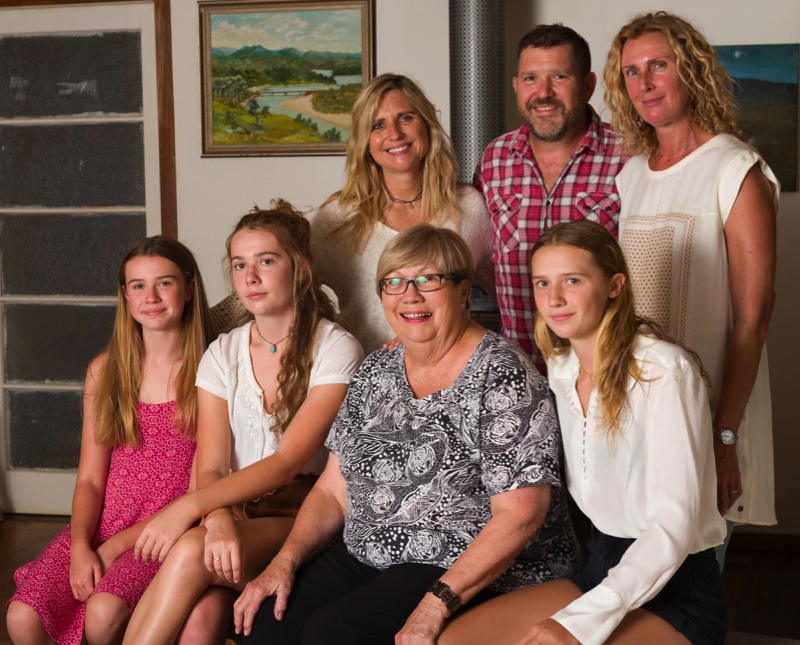
The Cromwell Family are all involved in making the business work. Standing from left: Greg’s sister, Karyn Cromwell Scarpa, Greg Cromwell and his wife Alison; seated, Bella, Aubrey, Greg’s mother Eleanor and Morley. Photo: Richard Johnson
While honeymooning with Alison in Tasmania, he came across Blundstone workboots for the first time and began making inquiries. Within a couple of years, they had exclusive rights to distribute Blundstones in Canada, and to retail RM Williams boots there as well. The Canadians love them and now the Cromwell’s three Australian Boot Company stores sell hundreds of thousand of pairs there. “It’s a big deal, and has allowed us to have some freedom to undertake new ventures here,” Greg says.
They also import and distribute a range of stylish coffee-making products, most notably the ROK Unplugged Espresso kit that allows aficionados to grind their own beans and make, sans electricity, a personalised cup of coffee, silently and with a warm glow of satisfaction.
They have their own coffee blend too, under the Top Shed label and are in the process of planting 100 coffee trees. With a large roasting machine already purchased, they are looking for a site to do their own processing through a new venture, The Coffee Agency. Beer-making is also in the pipeline, with a sort of “bake, roast and brew centre” envisaged for the property. A line of organic maple syrup is another possibility. (Enter the code Verandah 10 on the website to receive a 10% discount on the Espresso Unplugged coffee maker and grinder espressounplugged).
But none of this would be possible without the family showing a remarkable teamwork. Everyone pitches in, and with a grasshopper-minded dad whose personal motto is ‘fire, ready, aim,’ they need to be ready to hop to at a moment’s notice. “Alison and the girls make it all happen,” Greg says. “Without their capabilities and enthusiasm, this wouldn’t be possible.” Alison is the principal carer of the five horses on the property, including the latest acquisition, Bobbin. The three-year-old female brumby is a rescue horse from the Guy Fawkes Heritage Horse Association, yet to be ridden but settling in nicely.
The three teenage girls all fill significant roles in both the business and the hands-on side of the running of the property, including organising the farm’s beef and pork pop-up days, which attract up to 120 hungry guests.
“They set it all up, do all the selling, take visitors on tour, keep an eye on their children,” Greg says. “They’ve been empowered by their experience here.”
Morley, 16, has shown a talent for marketing, mastering Gumtree to advertise all the livestock, including the litters of kelpie puppies. She sold her first heifer when she was 10 and she has developed an expert eye for pricing, and for the formation and structure of cattle. Next she wants to upgrade the farm’s chicken breeding to include an incubator and a brooder box.
Eldest daughter Aubrey is off to UQ next year to study sports medicine, so someone will have to take over her duties keeping the animals’ records – births, deaths and “marriages”, tag numbers, treatments and so on. And the youngest, Bella, 14, feeds the dogs and helps train the horses.
The family’s team ethos has been founded in sport, which, says Greg, “is very much a part of our DNA. The farming’s a team sport. We’ve grown up being team sport players, and we’re a great team on the farm.” He discovered rugby in high school and has played it ever since, becoming a veteran at Bangalow, where he aims to reach the 200-match mark next season. Alison played netball competitively and is president of the Mullumbimby Netball Association. The girls all play the netball and basketball, representing Trinity Catholic College in Lismore and playing in other local leagues. But Aubrey’s flying the nest has been a wake-up call, prompting a plan to “zen” activities. “We realised we only have five years before all the girls are gone,” Greg says, so the plan for 2017 is to focus on family – “what the girls need us for” – rather than explore fresh avenues.
“We’ll concentrate on growing the core production lines,” says Morley, which is good news for the region’s foodies. The girls have spent most of their lives on farms and are not squeamish or sentimental about the animals’ fate. Morley says it would be worse if the cattle and pigs had not had a good life. “That would be sad but here there’s lots of space for them; they’re naturally fed, and handled constantly,” she says. Even the pigs are periodically allowed to roam freely in pasture.
Becoming farmers has been a “very, very steep learning curve”, says Alison. “We made every mistake in the book in the early days,” she says, including losing all their cattle in the bush – rescued by neighbouring “real farmers”, who have offered unfailing support.
Their friendly encouragement, the environment and Northern Co-operative Meat Company meatworks’ willingness to accept stock from small holders make the Northern Rivers an ideal place for the farming entrepreneur, Greg says.
But he knows his other business interests put him in a fortunate position – and acknowledges how tough it can be for many small farmers. The boot business is so successful the couple don’t have to work so hard, but they say it’s important for children to see their parents working – “it means they don’t take stuff for granted”.
And while none of the girls has plans to become a farmer, the earthy realism of life on the land has stood them in good stead for the world beyond Goonengerry’s green hills. They are all ambitious, confident, outgoing – and grateful for their good life.
As Aubrey says: “It means we know where our food comes from: knowing that, and the time and energy that has gone into it, makes it taste better.”
Photos: Digby Hildreth & Richard Johnson
Go to the Cromwell Farms website for more information: cromwellfarms
A Beef and Pork Pop-Up Day is planned at the farm on December 19 from 9am-12pm. To recieve a 10% discount, mention Verandah Magazine. (Enter the code Verandah 10 on the website to receive a 10% discount on the Espresso Unplugged coffee maker and grinder espressounplugged).
CROMWELL FARMS GROUP
Australia-Sheaffes Road
191 Sheaffes Rd, Goonengerry, NSW, 2482
PO Box 724 Mullumbimby, NSW, 2482
+61 2 6684 9400 (Farm House)
+61 2 6684 9457 (Top Shed)
+61 4477 55440 (Greg)
The post Black pigs and Blundstones – all part of the Cromwell Family Farm appeared first on .
]]>The post Native bee youth project wins major NRCF grant appeared first on .
]]>The region’s only philanthropic group, NRCF (Northern Rivers Community Foundation), announced its grants at its annual Grants Giving evening this week.
The NRCF was created 12 years ago by generous individuals within the community, and has distributed grants across 87 organisations and 211 projects – meeting social, cultural and environmental need. The 2016 announcements take the total amount committed by the Foundation to the community to over one million dollars.
The sought-after major annual grant of $25,000 was awarded to the Katia Native Bee Youth Employment Project from the Byron Bay Herb Nursery. The project aims to establish a native bee keeping business that provides employment opportunities for local indigenous youth and youth at disadvantage.
The Katia project will focus on manufacturing beehive boxes and farming native bees that can be sold or leased to the community and horticultural industry. The bees will be used for honey production as well as pollination of food crops and nut trees such as macadamias.
Participants will gain experience and skills in carpentry, native bee keeping and an understanding of the use of native bees in local indigenous cultural practices such as food and medicine production and implement making.
The Byron Bay Herb Nursery currently employs 23 people in their herb nursery, including six people with a disability. They also employ four young adults in their social enterprise area, which focuses on providing employment for youth at disadvantage through innovative projects such as composting.
The smallest grant of $1,000 went to Northern Rivers Wildlife for training 8 volunteers to handling venomous snakes.
NRCF’S Chair John Callanan said: “Between both these grant winners, another 20 projects further reflected the diversity of need within the community. We have found the innovation, creativity, articulation and sheer enthusiasm shared by all applicants to be heart-warming. We are seeing a new awareness and understanding of how to progress individual causes, be they from underprivileged groups, pop -up and continual arts seeding, access to health care, educational opportunities, life skills, law, justice and community connections – including social media hubs. Scan through the successful applicants for this year, you will be astonished.”
Grantees range from a Clown Doctors Program at Lismore Hospital, a Northern Rivers Indigenous Communities suicide prevention program, a deaf dance theatre workshop – to an e-space digital hub creating community reflections and swimming lessons for former refugee children.
2016/17 NRCF Grants
AUTISM SPECTRUM AUSTRALIAN (ASPECT)
Siblings Day 2017 – To provide a fun, supportive community day for the siblings of local children with autism.
BIALA SUPPORT SERVICES INC
An adult hydraulic change table for its Respite House.
BYRON YOUTH SERVICES
Nalia Dubay – A group of girls. To deliver an eight-week program for ‘at risk’ young women from Mullumbimby High School.
BYRON YOUTH THEATRE
Here Today: An original youth devised performance and workshop exploring the complex issues of youth suicide, early intervention and prevention – followed by panel discussion and community conversation event on youth suicide.
HART SERVICES
Learner Drivers’ Assistance Program – to assist people with barriers to obtain their probationary drivers licences and to accrue required driving hours and experience.
HEADSPACE LISMORE
“Spaced Out “@Headspace. Renovation and conversion of Headspace Lismore’s unused garage to a funky youth group room.
BYRON BAY HERB NURSERY
The Katia Native Bee Youth Employment Project – establishment of a native bee keeping business that provides employment opportunities for local Indigenous youth and youth at disadvantage.
LIFELINE NORTHERN RIVERS
Suicide prevention training for Northern Rivers Indigenous Communities. Delivering a culturally appropriate and tailored package for Aboriginal communities.
LISMORE SOUP KITCHEN
For the refurbishment of 4 units of transitional accommodation occupied by single males at 11 Bridge Street, North Lismore.
MID RICHMOND NEIGHBOURHOOD CENTRE
Crankfest Youth Festival: A celebration of Youth Culture and Art.
NORTHERN RIVERS LEGAL COMMUNITY CENTRE (NRLCC)
“Lets talk about Elder abuse.” To inform older members of our community about the prevalence of elder abuse, how to identify it and what to do about it.
NORTHERN RIVERS WILDLIFE CARERS
Training in handling venomous snakes – assistance with facilitation of the course for 8 NRWC volunteers.
RED INC
E-space digital hub: creating community connections. To engage people with autism spectrum disorder and other disabilities.
FERGUS & DELILAH PROJECT
Auspiced by SHAPING OUTCOMES Byron. Support Material for primary school teachers to teach the picture book Fergus and Delilah – a book that teaches young children to be more inclusive of children with a disability or developmental delay.
SHAPING OUTCOMES TWEED HEADS
The Parent Project – a seven-week course to assist parents/carers of children with a disability.
THE SHIFT PROJECT BYRON
SHIFT STITCHES – a small social enterprise program delivering training and work experience for disadvantaged women.
SPRUNG! INTEGRATED DANCE THEATRE
DANCING STORIES – A partnership between Sprung! and the Deaf Society North Coast to facilitate a deaf inclusive dance theatre workshop for deaf and non-deaf participants.
ST VINCENT DE PAUL
To kick start a swimming program for former refugee children at Goonellabah Sports Centre.
THE BUTTERY
For the Buttery’s free family counselling program.
THE HUMOUR FOUNDATION
For Lismore Hospital’s Clown Doctors Program.
UNITING CARE CASINO TRANSPORT TEAM
Transport to Resilience – transporting 10-12 clients in need of regular dialysis treatment to Lismore Base and St Vincent’s Hospital in Lismore.
WOMEN UP NORTH
LOVE BITES Program – a violence prevention program for young people.
www.nrcf.org.au
If you would like details on how to become involved and give to this independent philanthropic organisation go to https://www.nrcf.org.au/giving/why-give-to-the-nrcf/p/44
For further media information contact Rea Francis [email protected]
The post Native bee youth project wins major NRCF grant appeared first on .
]]>The post New school of regenerative design opens in Kingscliff appeared first on .
]]>What might a team of educators, designers and entrepreneurs might have in common? “The passion to live in a regenerative way and inspire others to do the same,” says Eurico Vianna, the educational director at Holos, and a third generation farmer passionate about regenerative living who is currently finishing a doctorate in Community Development (Sociology) at Griffith University (QLD). “Four of us have put our skills in permaculture, holistic management, design and entrepreneurship together to create Holos; a learning platform which we hope will inspire and empower those interested in making a shift from a failing society based on consumption and scarcity, to one based on autonomy, abundance and resilience,” he says.
Holos offers a wide range of courses tailored to empower people to pursue their personal projects through regenerative design and a hands on approach using nature as a template. Their upcoming courses will teach people how to design abundant and regenerative food production systems; how to use alternative energy sources; how to use chooks to convert waste into highly nutritious and truly organic eggs, and how to use native bees to boost your veggie garden’s crops – and much more. “We’re also setting up both an online and a physical platform of interaction,” says Eurico. “Both our website and the school will serve as a knowledge and labour resource base to support our students’ and community’s projects.”
As well as Eurico’s expertise in permaculture, the small band of
four bring some impressive credentials to the new business. Tiago Pires graduated in Industrial Design with a special interest in the fields of eco-design, ergonomics and usability; Fernanda Icasuriaga is an entrepreneur specialised in branding management and the financial director of Holos and Alan Minzon, the marketing coordinator at Holos, has consulted to Universities and Start-ups in Brazil and Africa, gathering skills to reach people interested in change and innovation.
To book your place in the school’s opening talk, send an email to [email protected].
UPCOMING COURSES
Introduction to Permaculture with Eurico Vianna
Event Details
Date: October 7, 2016 5:30 pm – 9, 2016 4:00 pm
This introductory course will get you started in Permaculture design. You will learn about Permaculture’s ethics and key designing concepts. This course will upskill you to start designing and implementing food production, water harvesting and energy producing systems.
Alternative Energy Sources with Dr Doone Wyborn
Event Details
Date: November 5, 2016 9:00 am – 4:00 pm
Learn about Peak Oil, the economic uncertainty it brings and how to use EROEI (energy return on energy invested) to guide your designs and actions towards resilience. Learn about the advantages of on and off grid PV, battery types and storages and join us for a hands on workshops on how to use solar energy for electric fencing, water pumping, 12 volt LED lights and keeping car batteries charged.
Dr Doone Wyborn is a Renewable Energy specialist with over 25 years of research and practical experience. He worked on the potential of Enhanced Geothermal Systems (EGS) geothermal energy from 1992 to retirement in 2013 and is recognised as the leading Australian authority on this subject.
Doone currently lives off grid and is developing a rural land share community on 830 acres of land in the Scenic Rim. The community will operate on permaculture principles aimed at minimising input from external sources for food, shelter, energy, water and waste management.
Fundamentals of Native Bee Keeping with Steve Maginnity
Event Details
Date:
November 19, 2016 9:00 am – 3:00 pm
It is estimated that in North America around 30% of the food humans consume is produced from bee pollinated plant life. The value of pollination by bees is estimated around $16 billion in the US alone. We would be unable to enjoy most of our favorite fruits, vegetables, or nuts without these pollinators.
Learn the fundamentals of native stingless beekeeping, how to use your hives to boost your veggie garden and orchard production, and how to harvest their medicinal honey.
Steve Maginnity has a degree in Agricultural Science and a Graduate Diploma in Education. He has been sharing his passion for stingless native bees in schools and communities all around Australia since 2008. Steve also sell hives and offer a pollination service through his business – The Australian Native Bee Company.
Fundamentals of Backyard Chooks with Syd Welling
Event Details
Date: December 3, 2016 9:00 am – 4:00 pm
Just as there is the right tool for each job, there is the right chook for your needs. Learn how to breed and raise the appropriate heirloom chickens for your specific needs and environment. You’ll love your chooks. They’ll turn your food scraps into truly organic nutritious eggs for you. They can also help you keep your veggie garden or orchard pest free. You can even use them as ‘tractors’ to get rid of grasses, scratch and fertilise specific spots to establish veggie patches or orchards.
Syd Welling is a permaculture designer with over 20 years of practical experience. Syd used permaculture to design and regenerate his parents farm from degraded pastures to a diverse and productive orchard in QLD. He has also designed his own farm, an abundant and resilient off grid permaculture property with over 18 years of established systems in Uki, NSW. In addition, Syd runs one of the most profitable and high quality solar energy companies in the Northern Rivers.
To book your place in our opening talk, please send an email to [email protected].
To keep yourself tuned to our courses and activities, like our FaceBook page: www.facebook.com/holosregenerativedesign
Holos: School of Regenerative Design – holosdesign.com.au
Contact – Eurico Vianna – [email protected] – 0430445540
The post New school of regenerative design opens in Kingscliff appeared first on .
]]>The post Sentry duty in the early misty morning appeared first on .
]]>For more info on Zentveld’s coffee go to: zentvelds.com.au
The post Sentry duty in the early misty morning appeared first on .
]]>The post Gold star for Lismore Council’s Environmental Excellence appeared first on .
]]>Lismore City Council won a Local Government Excellence Award for Environmental Leadership and Sustainability as well as a highly commended award for its Frontline Leaders Program at the Local Government Professionals Australia in Sydney the week before last on April.
The NSW Local Government Excellence Awards recognise councils that are achieving important milestones in their community and within their organisation and Council won the Environmental Leadership and Sustainability award for its organic certification of kerbside food and garden waste. Lismore was the first council in Australia to achieve this certification.
“We’re just so thrilled – organic certification was a long-held dream of ours and we can now proudly say that all our composting products are 100% organic certified,” Waste Operations Coordinator Kevin Trustum says.”We achieved organic certification for our green waste in 2012 but the kerbside certification was much more challenging and it took us another two years of development and testing.”
Trustum says that during the Imagine Lismore community consultation in 2012, residents said they wanted Lismore to become a model of sustainability. He said Lismore City Council was working working hard to fulfil that vision.
“This award shows that we are getting there, step by step, project by project. We’re always looking to innovate, to try new things, to be progressive and employ new technologies to help us become more sustainable,” says Trustum. “We have now totally closed the loop on our green waste services – all our green waste is made into new products and sold to farmers and gardeners to go back into the ground. It means local organic producers can buy local, and the money we generate goes into investigating and implementing further sustainability and recycling initiatives.”
Lismore also received a highly commended award in the Operational and Management Effectiveness category for its Frontline Leaders Program. All supervisors at Lismore City Council were required to undertake the training program, which empowers workers to be good leaders in order to improve internal culture and enhance productivity.
A modified version of the training will be rolled out for all Council staff in 2016.
For more information on Lismore City Council go to: lismore.nsw.gov.au
The post Gold star for Lismore Council’s Environmental Excellence appeared first on .
]]>The post Amelia Telford – planting seeds for the future appeared first on .
]]>Amelia Telford, Australia’s Young Conservationist of the Year, has been involved with the Youth Climate Coalition since high-school. Her passion for the environment led her to set up the Seed Indigenous Youth Climate Network – Josephine Flynn from HL Magazine caught up with Telford at this year’s Bluesfest.
First Nations music has always been embedded in the program at Bluesfest, however, this year saw the introduction of Boomerang – the global Indigenous arts and culture festival, incorporated into the main festival. Situated right next to the Jambalaya stage, the program included dance and music performances as well as talks and workshops. One of the participants was the amazing Amelia Telford. A Bundjalung woman from Tweed Heads Telford set up the Seed Indigenous Youth Climate Network, seedmob.org.au She has always had a passion for the environment, and noticed there was a disparity in the numbers of Indigenous and Non-Indigenous youth involved with the environmental movement, so she decided to do something about it…
Tell us a little bit about SEED:
The story goes back to the Australian Youth Climate Coalition, the AYCC, which is a large youth environmental organisation. I started volunteering for them when I was in high-school through the environment group at my school in Lismore. We heard about a big summit they were running that was bringing together youth from all across the country to Brisbane for a few days to learn more about the issue of climate change and to gain skills in how to take action locally. It was through that event that I realised that there were all of these people that cared a lot about climate change, but didn’t quite realise the impact that it had specifically on Aboriginal and Torres Strait Islander people. Not just in terms of the impacts of it, but becuase of the causes of it as well – for example, digging up fossil fuels destroys our country but also our culture. Our people are the ones that have looked after the land sustainably for tens of thousands of years and it’s so much a part of who we are. It’s our people that really need to be leading the fight and be a part of the decisions about what goes on in our country as well. Going to that event I noticed there was a real uni student/white privileged vibe going on and I really didn’t feel very connected to the space and noticed there weren’t many other indigenous young people there. I gave a talk at the event and I was recognised by one of the founders of the AYCC and she became my mentor. I mentioned my views to her and she was able to support me to start in a role in the organisation as a staff member targeting Aboriginal and Torres Strait Islander People. Over a year and a half, we recognised that we really needed our own name, our own logo and our own decision making autonomy and that gradually became Seed. In October in 2014, we held our first summit on climate change for Aboriginal and Torres Strait Islander people. It brought together 50 young people from across the country to Melbourne for three days and was the first time we could all come together and talk about the issue. Next month in April, we are holding our next big event. So two years on we are now bringing together young people from around the country that have been heading their own projects and campaigns in their own communities and are volunteering as members of Seed which is pretty cool.
It must have felt very empowering having that idea and seeing it come together and having so many people get on board..
Definitely! I mean, it’s not as if our people haven’t talked about protecting country or haven’t been a part of looking after this place for thousands of years, it’s just that specifically on the issue of climate change, being able to be a part of a National body that brings people together wasn’t really there and so that’s what we’re trying to do with Seed.
So what campaigns are you working on at the moment?
Our biggest one that we’ve been running for a few years now with AYCC and a lot of other environmental organisations, is to try and protect not only the Great Barrier Reef, but the country and our climate from the proposed coal port expansion up in Queensland. Adani, an Indian coal company are trying to build a new coal mine in central Queensland. They want to open the Galilee Basin, which is the largest coal reserves in the World. They currently have plans to build what’s known as the proposed Carmichael coal mine and then build a huge railway line out to the coast, expand the existing coal mine up there and then have about 7000 ships go through the Great Barrier Reef every year. It’s an extremely destructive project, it’s economically not viable considering that coal is on the decline every year and it would also destroy so much country throughout Queensland. The impact on climate change if that amount of coal would have if it was burnt, would be just be catastrophic for the community and the planet that we live on.
We’re trying to work with the communities who are fighting it at the moment too, in particular the Wangan and Jagalingou people whose traditional country is right on the sight where the coal mine is proposed. They’ve been saying no to Adani ever since the first day that is was proposed and they’re fighting really hard to see that this doesn’t go ahead.
There are a lot of environmental issues that happen in Australia that the Government doesn’t want us to know about. Is there anything that our readers in particular should know if they already don’t?
Yes, I mean there’s a lot! It’s really important that people do their own research into it and learn about their local Indigenous communities. Do your own research and don’t always trust what the government or main stream media are telling you. Look at the community and see what the people are wanting because ultimately everyone can benefit from community-based decisions. The Climate Council are a good source of information, they produce reports all the time that are about different impacts of climate change, such as bush fires, rising sea levels and heat waves. They talk about the impacts of different industries like coal and gas and how they’re affecting different communities in health, in social interactions, in a whole range of different things and they do it in a way where they really break it down so that everyone can understand.
Did you manage to get out and see anyone at Bluesfest?
Yes definitely! A highlight was Emma Donovan and the Putbacks, she was incredible. Another highlight was Uncle Archie Roach, he was just so good! He was actually talking about protecting country and he had this one great line that was saying that we needed to respect Mother Earth and all this it provides for us and if we don’t do that better soon, she would come and kick us in the moong, which is like, you know, kick us up the bum. I really agree with that and I think that if we don’t get our act together, it really is a scary thought of what could happen and what is already happening! I mean we have the beautiful dancers here from the Torres Strait Islands and they know best about how rising sea levels are affecting communities all around the World particularly low lying islands and low lying areas.
Story and photography shared with kind permission from HL Magazine, Josephine Flynn and Jade Hopley
For more info go to:
seedmob.org.au
Summit info:
Protect Country Seed Summit
April 29th-May 2nd
Sydney
www.seedmob.org.au/summit
The post Amelia Telford – planting seeds for the future appeared first on .
]]>
